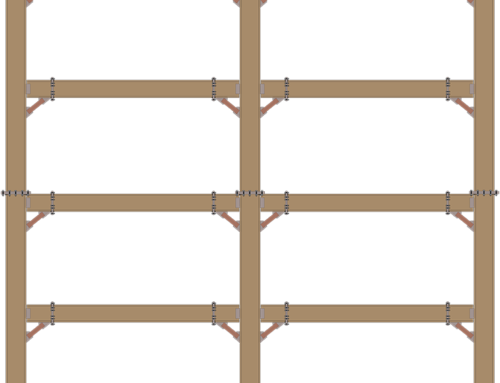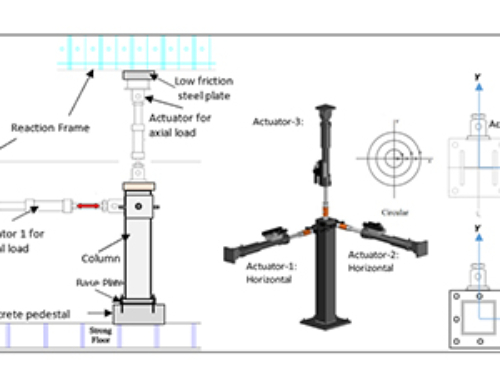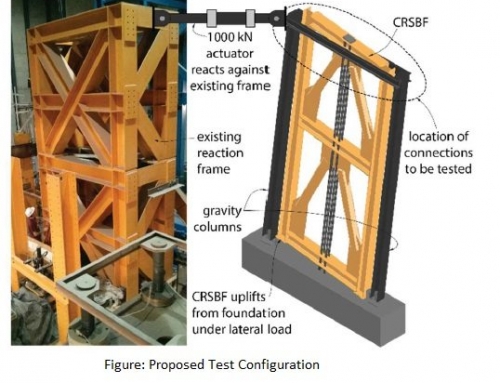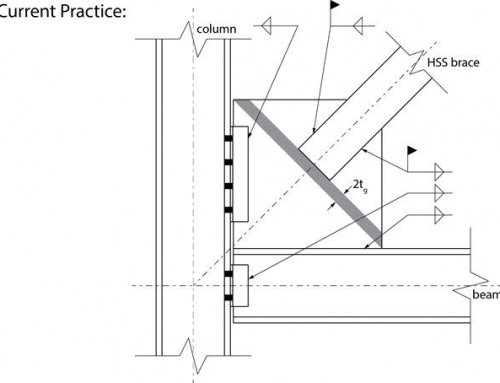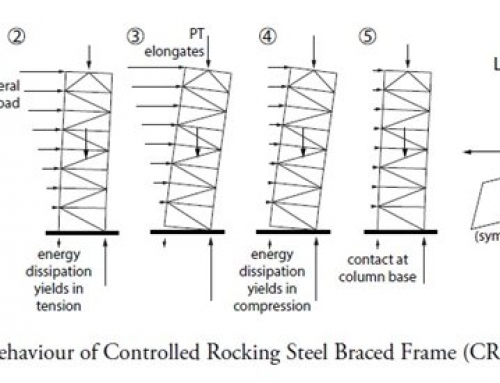2019
Dr. Lydell Wiebe
Department of Civil Engineering, McMaster University
Application of Artificial Intelligence to Performance-Based Earthquake Engineering of Steel Buildings
Advances in computational power, the rapidly developing field of Artificial Intelligence (AI) and the maturation of performance-based earthquake engineering (PBEE) provides a framework for the use of advanced analysis in the design of structures or retrofits to achieve specified performance objectives in future earthquakes.
Current seismic design methods produce acceptable solutions, but not necessarily optimal solutions. The development of Artificial Intelligence creates an opportunity to identify these optimal solutions to achieve defined objectives, such as minimum initial or life-cycle costs. Identifying these optimal solutions to the performance-based earthquake engineering of steel structures will lead to more economical and competitive designs with steel.
This project will investigate how steel buildings could be more optimally designed by applying AI to their performance-based earthquake engineering. Within this scope, three objectives have been defined: 1) identify one or more appropriate AI models to apply to finding an optimal solution for the performance-based earthquake engineering of steel buildings; 2) develop this technique through application to a case study steel structure, considering different assumptions about the stakeholders’ objectives and 3) repeat this process for additional steel buildings, so as to extract key features of the optimal solution for design recommendations and/or future study.
A recent report for the Insurance Board of Canada estimated that a realistic large earthquake off the west coast of Vancouver Island would result in $75 billion in losses, while one in eastern Quebec would cost $61 billion. Therefore, the ability to optimally design steel buildings to achieve the desired balance between seismic performance and initial cost will strengthen the position of the Canadian steel industry for when the next damaging earthquake happens.
BIOGRAPHY
Lydell Wiebe received his BASc (2005) and PhD (2013) from the University of Toronto, and his MSc from the ROSE School in Pavia, Italy (2008). He has received the GJ Jackson Fellowship Award (2005) and the HA Krentz Research Award (2015) from the Canadian Institute of Steel Construction. Dr. Wiebe is the Vice Chair of Working Group 9 (Seismic Design) for CSA S16 (Design of Steel Structures) and the Secretary of the Canadian Association for Earthquake Engineering. His research seeks to develop economical ways to improve structural performance, particularly under earthquake loading.




